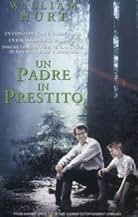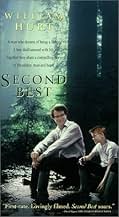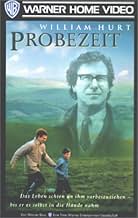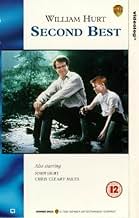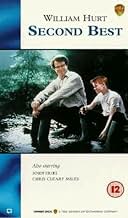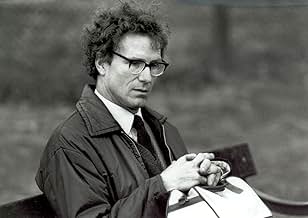ÉVALUATION IMDb
6,8/10
2,1 k
MA NOTE
Ajouter une intrigue dans votre langueGraham, a lonely Welsh postal worker, adopts James, a troubled ten-year-old boy. Graham always wanted a son, but James loves his biological father too much to give Graham a chance. Will the ... Tout lireGraham, a lonely Welsh postal worker, adopts James, a troubled ten-year-old boy. Graham always wanted a son, but James loves his biological father too much to give Graham a chance. Will the two be able to accept each other as family?Graham, a lonely Welsh postal worker, adopts James, a troubled ten-year-old boy. Graham always wanted a son, but James loves his biological father too much to give Graham a chance. Will the two be able to accept each other as family?
- Prix
- 1 victoire et 2 nominations au total
Avis en vedette
William Hurt is an interesting actor. Although he has made many money making Hollywood films, he seems to enjoy also making small artistic films that MUST bring him a lot less money but perhaps more personal satisfaction. Among these many "little" films he has done is Second Best--an odd little film well worth watching. Is it a perfect film? Certainly not. At times, it is a bit slow and emotionally sterile--though this is needed due to the type man Hurt is portraying. For some inexplicable reason (it would have been nice to know more about WHY), Welshman Hurt decides to take in a hard to adopt boy with the intention of adopting him. Because the boy has lots of emotional baggage, they do not easily bond and their relationship is strained. However, just because there are these awkward moments, do not stop watching--the payoff is there and the characters are much more realistic (with all their foibles) than what you are usually given in a typical movie!
David Cook, author of the novel of the same title and also involved in the film, is known for his sensitive and probing treatments of characters marginalized in society. After seeing the film, I made a point of searching for the book, and at long last spotted a "galley proof edition" in a used bookstore in Oxford. The picture is faithful to the novel-- if anything, excessively so. Much dialogue is reproduced intact. A number of small incidents and gestures which seem inconsequential or puzzling in the movie were revealed as symbols or evocations of episodes which the book had fleshed out. Directors themselves so immersed in every detail are at risk of assuming too much understanding from the audience, depriving them of just another few words, or a brief camera close-up, which would have put a point across coherently. But these are quibbles, for there is enough depth and quiet eloquence left here to call for a rare ten stars out of ten.
This is the story of an unlikely relationship which succeeds as the mutual balm for unusual wounds. The man Graham and the boy Jamie both suffer profoundly from separation from their fathers-- physical separation in Jamie's case (his adored dad is in prison), emotional in Graham's. Each discovers that the other cherishes the memory of just a few days of filial closeness, shattered shards of supreme bliss sparkling in the dismal landscape of their emotional lives. Yet not only does Graham, a candidate to adopt Jamie, lack the primary qualification for a stepfather: a wife. He is a shy nerd with no obvious charisma whatsoever for a hyperactive, street-wise, cynical kid.
But traumas in his past have stamped this boy with a vehement misogyny. As little as he fancies anyone presuming to take his father's place, he craves having a stepmother even less. Graham's bachelorhood is a relative advantage. Graham proves himself gradually with humility, honesty, and a quality of unfailing respect for the person struggling underneath Jamie's sullenness which one can only describe as reverence. A "special-ed" teacher of my acquaintance called Jamie (and Chris Cleary Miles' passionate characterization) very realistic, and pronounced Graham (as brought to life masterfully by William Hurt) "a genius" in his approach to the developing relationship.
While some will complain that this film drags, others will value its quiet atmosphere in which heart-codes are patiently decrypted. The more important the dialogue is, the likelier it is to approach whispers. One crucial central scene, barely audible, as the haunting strains of the score's "rift" theme echo away more faintly still, never to be heard again, must be one of the tenderest moments ever captured on celluloid.
Perhaps Graham has been plagued by a touch of agoraphobia. The cinematography deftly suggests this world view: interiors of small rooms, fussy wallpaper, obtrusive props, brilliant curtains covering the windows; exteriors somehow painting scenes of ravishing beauty with brushstrokes of vague terror.
Graham Holt is an unlikely hero, but a true one. If more people treated one another the way he does, the world would be a better place.
This is the story of an unlikely relationship which succeeds as the mutual balm for unusual wounds. The man Graham and the boy Jamie both suffer profoundly from separation from their fathers-- physical separation in Jamie's case (his adored dad is in prison), emotional in Graham's. Each discovers that the other cherishes the memory of just a few days of filial closeness, shattered shards of supreme bliss sparkling in the dismal landscape of their emotional lives. Yet not only does Graham, a candidate to adopt Jamie, lack the primary qualification for a stepfather: a wife. He is a shy nerd with no obvious charisma whatsoever for a hyperactive, street-wise, cynical kid.
But traumas in his past have stamped this boy with a vehement misogyny. As little as he fancies anyone presuming to take his father's place, he craves having a stepmother even less. Graham's bachelorhood is a relative advantage. Graham proves himself gradually with humility, honesty, and a quality of unfailing respect for the person struggling underneath Jamie's sullenness which one can only describe as reverence. A "special-ed" teacher of my acquaintance called Jamie (and Chris Cleary Miles' passionate characterization) very realistic, and pronounced Graham (as brought to life masterfully by William Hurt) "a genius" in his approach to the developing relationship.
While some will complain that this film drags, others will value its quiet atmosphere in which heart-codes are patiently decrypted. The more important the dialogue is, the likelier it is to approach whispers. One crucial central scene, barely audible, as the haunting strains of the score's "rift" theme echo away more faintly still, never to be heard again, must be one of the tenderest moments ever captured on celluloid.
Perhaps Graham has been plagued by a touch of agoraphobia. The cinematography deftly suggests this world view: interiors of small rooms, fussy wallpaper, obtrusive props, brilliant curtains covering the windows; exteriors somehow painting scenes of ravishing beauty with brushstrokes of vague terror.
Graham Holt is an unlikely hero, but a true one. If more people treated one another the way he does, the world would be a better place.
This is a moving, touching film. For me a little bit frightening too. In the real world there are some people, who behave like Holt. (Unimportant, but funny that the word "Holt" means Dead in Hungarian which is my first language.) This movie is like a therapy, an advice for unhappy, lonely people. A believable film is a great pleasure nowadays, but if you meet your own life face-to-face in a script, well... it's pretty scary. If you pay attention good enough, it changes your life! Thank God for this film!
William Hurt is very believable as a west country postmaster and the adoption process is taken apart in a sympathetic and believable manner. The film has charm and pace while dealing with a difficult subject. If it were to be made now would there be a different emphasis in the light of current obsessions with protecting children from paedophiles?
Paul wrote a beautiful review with the proper amount of reverence towards what is in our culture almost a sacred subject, the father son relationship. This is the story of two such relationships, each one gone bad, and how the two survivors find the solution in each other and could find the solution in nobody else. The filmmakers also had a problem which needed a solution and found that in the cinematography, direction and marvelous acting and casting (several actors for each character at different ages) and music you'll remember long after the lights go up. Because it's such a small scale picture I would only give it a 9/10 and BenHur and Laurence of Arabia get a 10, yet they're no better, only bigger.
Le saviez-vous
- AnecdotesSeveral reviews claimed that this film is set in Wales, and a Welsh town was the chief location for the movie, but the setting is, in fact, never specified and the accents of the actors in the film cover a wide area across Britain. Although the American William Hurt was praised for learning a Welsh accent, he actually sounds more like an Englishman from the West Country. It is noticeable that all the road signs seen in the film are only in English, whereas road signs in Wales are always in both English and Welsh.
- ConnexionsFeatured in Siskel & Ebert & the Movies: Only You/Second Best/Pulp Fiction (1994)
Meilleurs choix
Connectez-vous pour évaluer et surveiller les recommandations personnalisées
- How long is Second Best?Propulsé par Alexa
Détails
Box-office
- Brut – États-Unis et Canada
- 86 115 $ US
- Fin de semaine d'ouverture – États-Unis et Canada
- 19 190 $ US
- 2 oct. 1994
- Brut – à l'échelle mondiale
- 86 115 $ US
- Durée1 heure 45 minutes
- Couleur
- Mixage
- Rapport de forme
- 1.85 : 1
Contribuer à cette page
Suggérer une modification ou ajouter du contenu manquant

Lacune principale
By what name was Le père adoptif (1994) officially released in India in English?
Répondre


